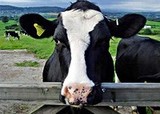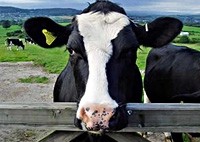Meat not tested for BSE enters supply chain, FSA
BSE testing is mandatory for cattle born in Switzerland if slaughtered for human consumption at over 30 months of age. The missing BSE test result was discovered on 23 August during routine cross checks of slaughter and BSE test data, said the UK’s food safety watchdog.
However, the agency stressed that it is very unlikely that the heifer was infected with BSE and as specified risk material (SRM) was removed, any risk to human health is extremely low, it added.
SRM is that part of the animal most likely to contain BSE infectivity.
The heifer, said the FSA, had been imported into the UK in December 2009 and was slaughtered at the Woolley Bros’s abattoir in Sheffield, on 14 July this year, at just over 42 months of age.
According to BSE regulations, the animal slaughtered before the untested heifer and the two animals slaughtered after the heifer should also have been removed from the food chain.
The FSA said that, by the time the failure was discovered, all of the associated carcasses had left the premises.
Three of the four associated carcasses, continued the agency, had been exported to the Netherlands and the authorities there have been informed.
Subsequent checks, it added, indicate that the meat from the other associated carcass is no longer in the food supply chain.
Too stringent controls
Meanwhile, an industry expert last month accused the FSA in Scotland of having a draconian approach to meat inspection, in a published review that was the most recent of ongoing efforts by meat processors to have regulations imposed at the onset of the BSE crisis reformed.
Alan Kirkwood, a former meat firm owner, said the agency maintained strict BSE controls even though the disease had virtually disappeared from the UK and he called on the watchdog to act now to address its enforcement methods.
“This is damaging, both to industry and the reputation of a Government publicly committed to reducing bureaucracy and red tape,” he said.
“The biggest stumbling block to a more consensual, risk-based approach would appear to be the fact that although, publicly, the FSA is making some encouraging noises about working together, the common reality is that unnecessary conflict with the meat industry is still far too evident,” he added.


















